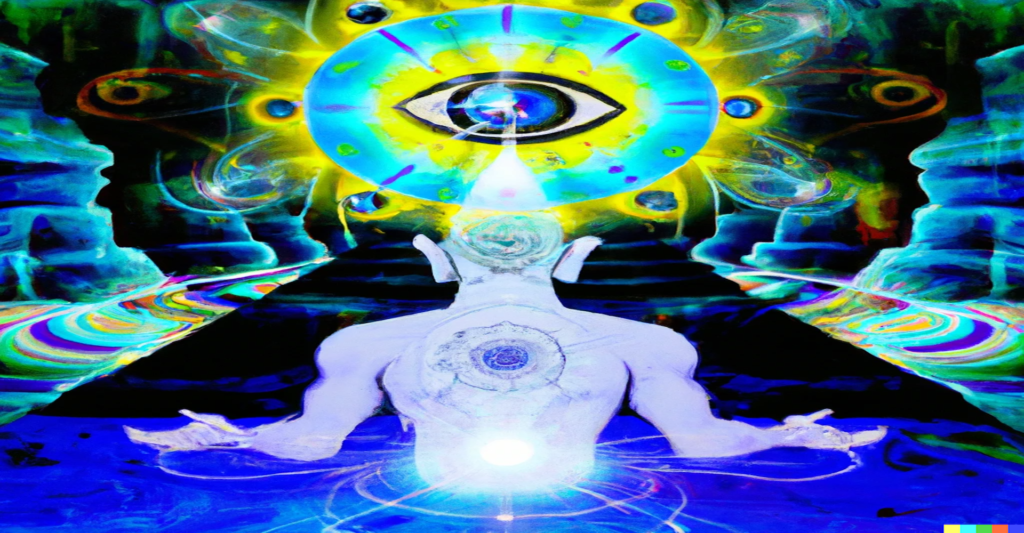Intuition is a fascinating subject that has intrigued scientists, artists, and philosophers for centuries. But what is intuition, and how to know, access, and use it?
Intuition, at its core, is often described as a gut feeling or inner knowing that doesn’t rely on conscious thought or rational analysis. Instead, intuition is a profoundly intuitive sense that arises from our subconscious mind and guides our actions, ideas, and emotions. It’s a form of subconscious processing that draws on our past experiences and insights to guide us toward the right decision or action. When we learn to trust our intuition, we can tap into a deeper source of wisdom and creativity that helps us navigate life’s challenges more easily.

Intuition is often dismissed as a vague and mystical concept. However, scientific evidence supports its existence and importance in our lives.
Science has shown that the brain processes information unconsciously before it becomes consciously aware of it, allowing us to make split-second decisions. Intuition is rooted in the unconscious mind, which is capable of processing information at a much faster rate than our conscious mind. The subconscious mind can process information up to 11 million times faster than our conscious mind, found a study conducted by scientists at the University of California. This implies that our intuition can pick up on subtle environmental cues and patterns that we might not consciously recognize, helping us make more informed decisions.
Research has shown that intuition is particularly effective when making quick decisions or dealing with complex information. Participants in a study published in Psychological Science journal found that those who trusted their intuition could solve a difficult problem faster and more accurately than those who relied solely on logical analysis. Another study published in the Journal of Personality and Social Psychology concluded that individuals more in tune with their intuition had greater life satisfaction, creativity, and self-awareness. The University of Michigan found that people who scored high on a test of intuition would make more successful investment decisions than those who scored low.
Several books have explored the science of intuition and its implication in life’s trajectory for realizing your unlimited potential. In his book, Blink, Malcolm Gladwell makes a case that our intuition can be incredibly accurate, even when we don’t have all the necessary information. He cites several examples, such as the ability of art experts to identify a fake painting in seconds and the ability of firefighters to sense when a building is about to collapse.
Rosamund Stone Zander and Benjamin Zander argue in “The Art of Possibility” that intuition is the key to unlocking our creativity and discovering new possibilities. Similarly, James Redfield, in “The Celestine Prophecy,” explores how intuition can guide us toward our purpose and help us connect with the universe’s energy. He notes that intuition is not just a tool for decision-making but a way of life that can help us live in alignment with our true selves.
Many successful people, from business leaders to artists, credit intuition for their success. For example, Steve Jobs was known for his intuitive approach to product design. He once said, “Intuition is a very powerful thing, more powerful than intellect, in my opinion.” Oprah Winfrey has been vocal about her reliance on intuition in making decisions. Albert Einstein credited his intuitive insights with helping him make breakthroughs in his work. He once said, “the intuitive mind is a sacred gift, and the rational mind is a faithful servant. We have created a society that honors the servant and has forgotten the gift.”
The scientific and real-life evidence suggest that intuition is critical for progress and well-being.Now, the question is how to tap into such a vital faculty and use it at your will to unleash your unlimited potential.
I learned some practices by listening to some great minds. I have been using them regularly and can confirm firsthand that these practices work. A few to start with are:
Cultivate presence – being present is the foundation of accessing our intuition. Practice mindfulness meditation, breathwork, or other techniques that help you connect with the surroundings and increase your mental presence.
Listen to your body – our bodies are powerful antennas that can pick up on subtle signals from the universe. Pay attention to how your body feels when deciding or pursuing your goals. If something doesn’t feel right, it’s likely your intuition telling you to reconsider.
Practice self-reflection – reflecting on your thoughts and emotions can help you connect with your inner wisdom. Journaling, meditation, or talking with a trusted friend can help you process your experiences and gain insights.
Trust the universe – the universe constantly sends us signals and synchronicities that can guide us toward our purpose. Paying attention to divine signs can help us uncover new possibilities and experiences. Remember, I always quote Rumi’s “What you seek is seeking you.”
Trust your first impression – our initial reaction to a situation or person is often a result of our intuition. Instead of dismissing this feeling, take a moment to explore it further. What is your intuition trying to tell you?
Don’t forget; intuition without action would be a waste. Trusting your intuition means taking inspired action, even if it may seem unconventional or outside your comfort zone. In my earlier blog, I argued that making quick decisions and acting on them with a positive and never-give-up mindset will make you truly unstoppable. Tapping into our deep subconscious mind for answers to challenging situations and trusting instincts for those split-second decisions, followed by action, will set you up for a life-long journey of unearthing your limitless potential.
I’m grateful for your time in reading this blog. In the comments section, let me know your experience and perspective on the subject. Please share the blog with your friends if you enjoyed reading it.
